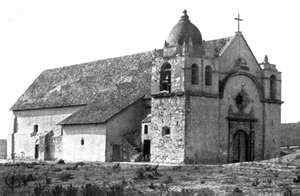
Communion of Reformed Evangelical Churches
MISSION to the CREC


The Covenant of God
Throughout history God made covenants with man. A covenant made by God is "an unchangeable divinely imposed legal agreement between God and man that stipulates the condition of their relationship." (Berkhof, Systematic Theology) These covenants are essentially conditional promises, God promises blessing if the covenant conditions are kept and God threatens curses if they are broken. (Grudem, Systematic Theology) For example the covenants with Adam, Abraham and Moses, the primary condition was obedience. There are also unconditional covenants, the covenant God made with Noah and the New Covenant are unconditional
Conditional vs. Unconditional Covenant: CREC teaches that the Covenant of Grace requires "persevering faithfulness" for maintaining covenantal blessings, suggesting that God's promises are conditioned on ongoing obedience rather than solely on Christ's work. For instance, CREC proponent Rich Lusk states, "The covenant is not unconditional. It requires persevering faithfulness. " King's Congregation, a CREC church in Meridian ID, has in their confession, "We deny that the New Covenant abolishes either the requirement of sustained covenant faithfulness by God’s people or the curses of the Covenant upon those who are unfaithful. Both the blessings and the curses of the New Covenant are intensified over those of the Old Covenant. We deny that God’s requirement of sustained covenant faithfulness is contrary to salvation by grace through faith or the security of the salvation of God’s people. The PCA rejects this as undermining the unconditional nature of the Covenant of Grace in the Westminster Standards (e.g., WCF 7.3), where perseverance is grounded in God's immutable decree and effectual calling, not human effort. This CREC view is seen as reintroducing elements of the covenant of works into the Covenant of Grace, collapsing the bi-covenantal framework
Though it is common in Reformed theology to use the term covenant of grace both broadly and narrowly – that is, to speak of it entailing everyone who is baptized into the Christ-professing covenant community (broad) and in reference to those who are elect members of the invisible church, united to Christ by the Spirit through faith (narrow) – nevertheless, the Confession never speaks as if all those who are in the covenant of grace broadly considered (the visible church) are recipients of the substance or saving benefits of the covenant of grace narrowly considered (the invisible church). This is a vital distinction, and so those who deny or confuse it, or who assert that the benefits of the covenant of grace accrue to all who are baptized, even conditionally, do err and are out of accord with both the Scriptures and the Confession.
5 SOLAS of the REFORMATION
"The Truth Will Set You Free"
The more you grasp the Truth of God's Word, the simpler it becomes to identify the errors as you read or hear them.
The Five Solas summarize the Core Theological Beliefs of the Reformation.
Latin for "Scripture alone". This principle asserts that the Bible is the ultimate authority for Christian faith and practice, not human traditions or interpretations.
Latin for "Grace alone". This principle emphasizes that salvation is a free gift from God, not earned by human merit or works.
Latin for "Faith alone". This principle highlights that salvation is received through faith in Jesus Christ, not through any combination of faith and works.
Latin for "Christ alone". This principle asserts that Jesus Christ is the only mediator between God and humanity, and salvation is found only in Him.
Latin for "To God alone be the glory". This principle underscores that all glory and honor belong to God alone, and the purpose of life is to glorify Him.


Faith Alone - Good Works
Faith is a Gift from God - Faithfulness is a Work
Sustain Covenant Faithfulness is not a Requirement for Salvation it is the Result of being Saved by Grave Alone through Faith Alone
True-God promises to save everyone that believes. False-God promises salvation to all on the condition they believe.
Faith is not a prerequisite or condition unto salvation but a gift of God and a God given instrument whereby we appropriate the salvation in Christ.
These good works, done in obedience to God’s commandments, are the fruits and evidences of a true and lively faith; and by them believers manifest their thankfulness, strengthen their assurance, edify their brethren, adorn the profession of the gospel, stop the mouths of the adversaries, and glorify God, whose workmanship they are, created in Christ Jesus thereunto, that having their fruit unto holiness they may have the end eternal life.


(James 2:18, 22; Psalms 116:12, 13; 1 John 2:3, 5; 2 Peter 1:5-11; Matthew 5:16; 1 Timothy 6:1; 1 Peter 2:15; Philippians 1:11; Ephesians 2:10; Romans 6:22)
Their ability to do good works is not at all of themselves, but wholly from the Spirit of Christ; and that they may be enabled thereunto, besides the graces they have already received, there is necessary an actual influence of the same Holy Spirit, to work in them to will and to do of his good pleasure; yet they are not hereupon to grow negligent, as if they were not bound to perform any duty, unless upon a special motion of the Spirit, but they ought to be diligent in stirring up the grace of God that is in them.
(John 15:4, 5; 2 Corinthians 3:5; Philippians 2:12-13; Hebrews 6:11-12; Isaiah 64:7)
What Others are Writing


-- "The true children of the Reformation will be appalled at the arrogant dismissal of the teachings of all the Reformers. In such a dismissal of these men whom God used to reform the church, there is a pride and conceit that staggers the imagination. Theological pygmies stand in the shadows of the giants of the sixteenth century and criticize them for being so tall."
"But worse: the way is paved for a return to Rome, something many Protestants have already done. If justification is not by faith alone, then the church can find no reason not to apologize to Rome for the sins of the sixteenth century and to rush back into the embrace of the pope. But let it not be forgotten: along the way back to Rome, one will have to pass by the graves of countless martyrs who died excruciatingly painful deaths in their commitment to the truth of sovereign grace. These graves will be the silent accusers of all who repudiate their glorious heritage."
"The claim to have discovered something new and interesting and to be more biblical, of course, attracts attention from, if I may be blunt, naive evangelicals who do not know the Reformation or the history of Reformed theology and exegesis in the first place but who are perhaps attracted to the doctrine of predestination and disposed toward novelty already.
The difficulty with the claim to be reforming the Reformed churches, of course, is that the CREC ends up advocating views already considered and rejected by the Reformed churches. Most of what the CREC is peddling is little different in substance from what the medieval church taught and from what the Remonstrants taught in reaction to the Reformation doctrine of justification sola gratia, sola fide."
The CREC should remove the Reformed from their name because they do not teach the Reformed doctrine of salvation. John Calvin, "Justification by faith alone is the hinge on which all true religion turns."
If your church teaches God requires sustained covenant faithfulness for salvation that is Catholic doctrine not Reformed.
Catholic church: "Good works are considered evidence of true faith and are necessary for salvation. Good works are seen as fruits of faith and evidence of a genuine relationship with God. They are not a means of earning salvation but are essential for its fulfillment.";







